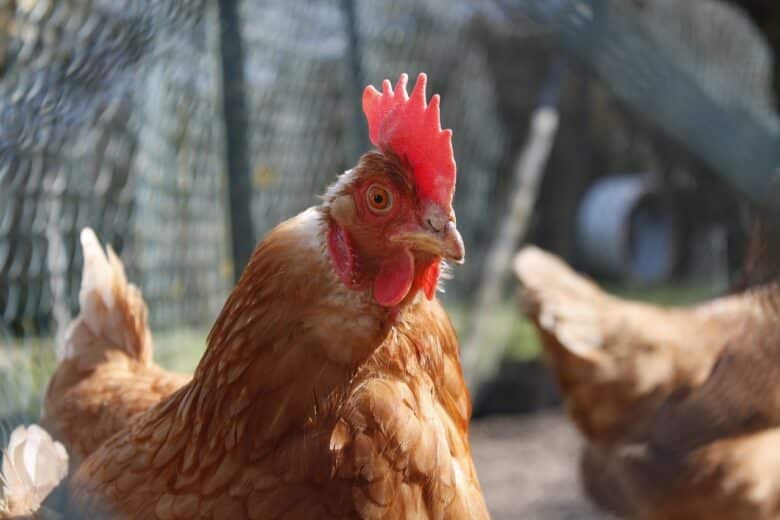“I just finished my Discipleship Training School,” we may say. Or perhaps, “I was just awarded my Master of Divinity degree.” We post pictures on Facebook or Instagram of our graduation ceremonies, put the certificate on the wall, and pat ourselves on the back for our achievements. And well we should! These are programs we have put a lot of hard work into and completed. The problem is, this affects the way we think about making disciples.
Training disciples is a process, not a program, or an event. As we look at the Gospels we never see Jesus handing out certificates to his twelve and saying, “Okay, now you’ve arrived.” Instead, he called them to follow Him. He invited them into a way of life with Him. It was one of ongoing training, mentoring, and deep relationship.
Our training in the church (and para-church) has become so programmatic. We run discipleship training schools, classes, and courses. This can easily create within us an unhelpful mindset where we see discipleship as an event to complete, rather than a relationship of life-on-life mentoring.
Coaching, even Disciple-making Movement (DMM) and Church Planting Movement (CPM) coaching can have similar issues. We think about our coaching program or session and how many have been completed, rather than seeing it as a life-on-life relationship that includes connection outside of the one-hour call.
Listen for the Chickens
My friend and mentor, Bill Smith, was training a group of us on how to coach Disciple-Making Movement leaders. He said something interesting that stuck with our team. We were trying to figure out how to coach people in an online environment in a more relational way. He instructed us, “You have to listen for the chickens.” Since then, our team has begun to call it “chicken listening.” We now have certain coaches whom we jokingly call “expert chicken listeners.” What did Bill mean?
He was talking about how, even on a Zoom call, you need to be listening not only to the words people say but watching the environment they are in. You need to be learning about their lives, families, and situation. Are there chickens squawking in the background? You’d be surprised how often I hear that as I coach people in Africa and Asia. It tells me something. Chickens are part of their lives.
Is there a child popping their little head into the screen, or crying in the background? How many kids do they have? Are those kids sick? What is going on in their lives? It’s not only about coaching them in how they are doing in making disciples. As a coach or mentor, you need to observe and understand who they are, building a true relationship with them.
Masked Faces & Pandemic Issues
During the pandemic, we were radically restricted in our ability to meet with people face to face. Travel came to a standstill. It was not easy to get on a plane and go anywhere, especially if it meant crossing international boundaries. My husband and I were stuck in the United States for eleven months, waiting to return to Thailand from a trip we’d taken to Brazil right as COVID-19 hit with a fury. When we finally were able to return, we had to go through a fourteen-day quarantine in an expensive Bangkok hotel where staff in hazmat suits brought us our meals each day. This was required before we could enter the country.

Then there was the masking issue. Even when we met in person, our faces were covered. How do you mentor and make disciples in such an environment? You learn to listen for the chickens. You must grow skills of connecting and observing, some might call it discerning, what is happening in the lives of those you were discipling. During the pandemic, we had to innovate and learn many new things.
Post-pandemic (and who knows if it is really ever going to be fully over, right?), what have we gained that we can continue to apply as we train disciples who will train more disciples? Maybe part of it is becoming skilled at “listening for the chickens.”
What happens when we embrace a programmatic approach to training disciples is we get people who have heads full of knowledge, without the life transformation and skill development needed to reproduce disciples.
C. Anderson
More Than a Class
Our training of disciples and disciple-makers must be more than a Wednesday night class or an online training series people go through. What happens when we embrace a programmatic approach to training disciples is we get people who have heads full of knowledge, without the life transformation and skill development needed to reproduce disciples. If our goal is to see disciple multiplication, it demands a radical shift in thinking and approach.
Let’s be real. This approach is harder and in many ways more demanding. It is easy to run a class or speak in a stadium on disciple-making. It is much more difficult to have sustained, long-term relationships with people you are training and discipline. There is a lot of effort involved in walking with people as you see life transformation, sticking with them until they are able to train and disciple others. Yet that is what Jesus modeled. That is what bears fruit and multiplies.
You might be thinking, but how do we do that? I don’t have time to do life-on-life with everyone in my church or small group. True. But if we will disciple a few in this way, and they in turn with disciple others, we can!
We must get out of the pulpit, out of the office, and into the streets and homes of those we serve if we ever want to see them begin to multiply disciples. According to churchanswers.com, most pastors spend ten to eighteen hours a week in sermon preparation. Many spend up to thirty hours a week.
Don’t get me wrong, I’m not saying if you are a pastor that you shouldn’t work hard to prepare excellent messages for the people you serve. But, if you spend thirty hours a week in your office and study, how much time can you actually devote to disciple-making in your community or to training people how to make disciples?
Obedience Not Knowledge Based Discipleship
A key characteristic of Disciple-Making Movements is that they are obedience rather than knowledge-based. Instead of focusing so much energy on crafting and delivering a beautiful message that most people will forget before Monday hits, what if we devoted at least some hours each week to being out in our community and sharing Jesus with those who don’t know Him? And what if we brought along with us those we are training and showed them how to disciple others? This would be life-on-life disciple-making. This is what reproduces disciples incredibly fast.
Youth With A Mission (YWAM) is the agency that my husband and I have had the privilege of working with for more than 30 years. Years ago, when we did our Discipleship Training School or DTS with YWAM, we needed to first go through this program before we could join the mission. It was life-changing. Why? Because it was life-on-life. We read scripture together, we listened to speakers together, we worked together, we played together and we went on outreach together. We learned a lot in the classroom, but far more in the community and on outreach as we did ministry with others. It was powerful! How do we do something similar, without sending everyone away for an expensive six-month program? And how do we continue to do life-on-life after a program like the DTS is over? These are important questions to consider.
In a recent call with one of our most fruitful practitioners who has gone through the online course, Getting Started in Disciple Making Movements, we talked about this. “Nkeiruka, which of the people you are discipling to disciple others are growing the most?” I asked.
“The ones I take with me in the field,” she said.
“Hmm. Tell me more about that,” I replied. As we talked further, it became more and more obvious. Those she was training life-on-life and taking out with her to model disciple-making were growing the fastest and were able to train others.
Training is a lot more than a class, or even a weekly Discovery Bible Study. It is an ongoing process of teaching, skill training, practice, modeling in the field, debriefing, training again, sending out again, and eating, playing, and worshipping together. And don’t forget, as you train and coach disciples to make disciples, be sure to listen for the chickens.
In what ways could you change how you make disciples in light of what you’ve learned above? Share in the comments below or post your thoughts in the DMMs Frontier Missions Facebook group.




Comments
Our Christian Children ministry extended greetings to you.
Need to go Mission in Shoutheast Asia
Pingback: Chicken Evangelism: A Strategic First Step in Evangelism — bmarkanderson.com